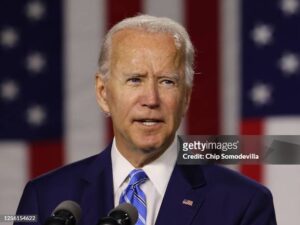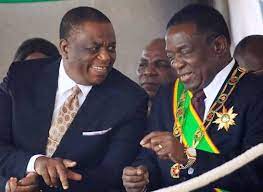Brenna Matendere
Harare—The new sanctions recently imposed on 11 individuals and three companies by the US government provides a chance for Zimbabwean political and economic renewal, a senior Washington official in Harare told journalists on Wednesday.
On Monday, US president, Joseph Biden, retired the Zimbabwe targeted sanctions programme adopted in early 2003 through an executive order.
On the same day, the Department of Treasury issued a new list of restrictions that designated President Emmerson Mnangagwa and a far smaller “criminal network of government officials and business people who are most responsible for corruption and human rights abuses against the people of Zimbabwe”.
The new White House regime of restrictions falls under the Global Magnitsky Human Rights Accountability Programme (GloMag) whose radar stretches beyond Zimbabwe and will be implemented through the Office of Foreign Assets Control (OFAC).

The new sanctions affect top ruling Zanu PF politicians, corrupt business people and entities as well as some security functionaries through asset freezes as well as foreign travel and business restrictions.
Laurence Socha, the Chargé d’Affaires at the US embassy in Zimbabwe, insisted at the Wednesday presser that the GloMag sanctions would not affect the generality of Zimbabweans, but the listed individuals and business entities only.
“President Biden has determined that the authorities in the executive orders that he signed that implements the Global Magnitsky human rights accountability act is the best approach to address human rights and corruption concerns in Zimbabwe.
“Sanctions on these individuals and entities do not represent a sanction on Zimbabwe or its public. The United States reaffirms its commitment to working with the people of Zimbabwe. This sanctions transition makes clear what has always been true. US sanctions are not on the country of Zimbabwe,” said Socha in response to a media question.

He added that, instead of viewing the new sanctions negatively, they are meant to bring positive political and economic change to Zimbabwe.
“We see it (GloMag sanctions) as an opportunity for the government of Zimbabwe to make good on the democratic reforms that it says it’s committed to. We see it as an opportunity for business to have a new look at Zimbabwe.
“It was hard under the previous program titled the Zimbabwe Sanctions Program to get away from perceptions that you could not do business in Zimbabwe. That’s not true. And so we hope that business and financial institutions have a new look at Zimbabwe’s markets and connections with its people.
“But, lastly, we see this as an opening for a constructive relationship between the people of the United States and Zimbabwe so that all 16 million people here have the opportunity to prosper. Thank you for your questions,” said Socha.
The 2003 sanctions that were renewed through yearly executive orders until the transition to the GloMag programme last Monday have severely affected Zimbabwe’s international political, credit-worthy and doing-business ratings, with investors considering the country a risky destination.
Socha also maintained that the Zimbabwe Democracy and Economic Recovery Act (ZDERA) that was promulgated in 2001 “to support the people of Zimbabwe in their struggle to effect peaceful, democratic change, achieve broad-based and equitable economic growth, and restore the rule of law” was not punitive.
“ZDERA is not a sanction. We have never invoked ZDERA to oppose international financial institutions from loans or debt restructuring… ZDERA outlines a clear roadmap for (the) government of Zimbabwe to access concessional financing and possible debt restructuring. But this can only happen once the government of Zimbabwe has paid its outstanding debt arrears to the international community,” said Socha.
Transitioning to the GloMag sanctions by Washington coincided with US withdrawal from debt relief negotiations involving the African Development Bank (AfDB).
Zimbabwe’s total consolidated debt stood at US$17.5 billion by mid-2023, according to the AfDB Group, with US$14 billion being the amount owed to international creditors while US$3.4 billion is its domestic debt.
The Zimbabwean government has said it is aiming to clear its debt arrears by December 2025, but experts view this as an over-optimistic projection considering the sluggish pace at which Harare is moving.
Besides President Mnangagwa, the new sanctions list includes his wife, Auxillia, Vice President Constantino Chiwenga as well as Zanu PF chairperson and Defence minister, Oppah Muchinguri.

From the security sector, the US Treasury department has designated former Intelligence minister, Owen Ncube, current deputy director general of the Central Intelligence Organisation (CIO), Walter Tapfumaneyi, police commissioner general, Godwin Matanga, as well as his deputy, Stephen Mutamba,
Businesspeople on the list are Kudakwashe Tagwirei—together with his wife, Sandra Mupunga—and his business associate, Obey Chimuka.
Tagwirei’s company, Sakunda Holdings, as well as two entities run by Chimuka, Fossil Agro and Fossil Contracting, are also included.


Comments are closed.